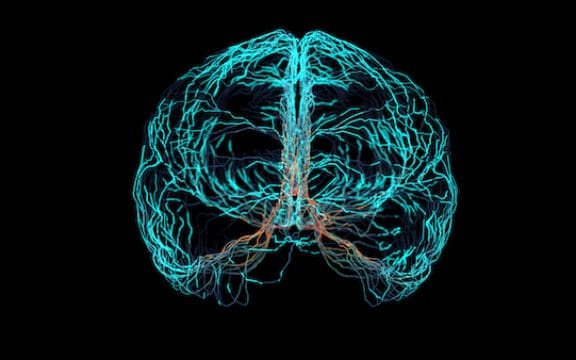Perinatal depression is defined as depression during pregnancy, around childbirth, or within the first year postpartum. Postpartum depression is one form of perinatal depression affecting approximately 10-20 percent of new mothers. Many cases of perinatal depression are not treated because women can feel uncomfortable voicing their symptoms. If you are experiencing a form of perinatal depression; you are not an unfit mother. All forms of depression are a disease. When your body performs the incredible and tumultuous acts of carrying and delivering a child, it is prone to contracting postpartum depression. What you need is treatment and support, not shame and self-doubt. If you want to learn more about postpartum depression, click here (we’ll link to the other post when it’s live).
If you or someone you know is suffering from depression during pregnancy or after giving birth, it is important to seek the help of a mental health professional. At our New York City TMS center, we are proud to help any mother with postpartum depression find safe, effective treatment.
Postpartum Depression Can Benefit from Alternative Treatments
As the leading complication of childbirth, postpartum depression can affect the health of both the mother and child, and it must not be left untreated. This condition can significantly reduce maternal-infant bonding, establish negative parenting strategies, and in extreme cases, can result in suicide and infanticide. While the need for treatment is undeniable, particular care needs to be taken when treating this vulnerable group.
Perinatal and postpartum depression are frequently treated with psychotherapy and/or antidepressants. However, many women would like to avoid taking medication while pregnant since all medications cross the mother’s placenta and affect their baby. Accordingly, the use of antidepressants drops significantly during pregnancy in many women. Although psychotherapy–particularly cognitive behavioral therapy and interpersonal psychotherapy–can be effective, barriers include difficulty finding qualified providers, cost, and significant time often necessary to before improvement occurs. Therefore, neuromodulation strategies such as transcranial magnetic stimulation (TMS) are appealing alternatives for the treatment of depression in pregnant women.
Even after childbirth, many women are hesitant to take medications while they are nursing. Antidepressants have a number of side effects ranging in severity. One way to avoid these risks is to use transcranial magnetic stimulation (TMS) to treat postpartum depression. TMS produces results that are comparable with those of antidepressants, without the necessity to cease breastfeeding or transmit undesirable chemicals to the newborn.
NYC TMS Treatment for Pregnant Women
Over the last decade, researchers and medical providers have demonstrated that TMS is a safe and effective treatment option for perinatal depression. The first study of TMS in pregnant women was published in 2011 by Dr. Deborah Kim and colleagues at the University of Pennsylvania, where low-frequency, right-sided TMS was used to treat 10 depressed pregnant women during their 2nd and 3rd trimesters. In this study, seven out of ten (70%) subjects achieved response (≥50% improvement in the severity of their depressive symptoms). There were no adverse effects other than mild headaches in 4 of the women. There were no preterm births and all infants were admitted to the well-baby nursery and were discharged healthy with the mother. This study and subsequent experience demonstrate low frequency, right-sided TMS is likely the best strategy to optimize effectiveness and safety in pregnant women.
NYC TMS Treatment for Postpartum Depression
Given the limited efficacy and possible side effects of traditional treatments for Postpartum Depression, TMS is an alternative treatment strategy with proven efficacy in depression and good safety profile. In 2010, Garcia and colleagues treated 9 women with postpartum depression with TMS. Significant effects were noticed after only 2 weeks of treatment, with eight out of nine patients achieving remission from depression after 4 weeks. Seven out of these eight patients remained in remission after 180 days.
A 2012 study employing a clinical TMS trial for women suffering from postpartum depression revealed that TMS is able to not only relieve the clinical conditions of postpartum depression, but also improve social and cognitive functions. These social and cognitive improvements may be especially important to the family in several ways, given that the postpartum period involves decisive social challenges associated with changes in family and household organization.
It was concluded in a 2016 study that TMS therapy is a valuable, non-pharmacologic means of treating postpartum depression. 73.7% of the women in this study achieved remission from their postpartum depression symptoms following TMS treatment.
A systematic review study published this year by Dr. Ganho-Avila and colleagues concluded that TMS shows promising results in women with postpartum depression, with clinically significant decreases in symptoms of depression (as measured by the Edinburgh Postnatal Depression Scale (EPDS) scores) after four weeks of TMS, and an overall high safety profile
Consideration of TMS in this population requires close collaboration between the TMS expert, the family, an obstetrician, and the primary psychiatrist. Read more about what it’s like to receive this therapy at our New York City TMS facility.
Make an Appointment at Our New York City TMS Treatment Center
Women who would like to consider TMS treatments for postpartum depression should consult with Mid City TMS to discuss their options and create a customized care plan. Our New York City TMS center is conveniently located in Midtown Manhattan at 280 Madison Avenue, and we are open from 8:00 AM to 8:00 PM Monday through Friday. Give us a call or contact us online to schedule an appointment.
































